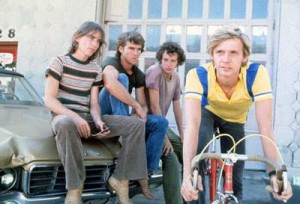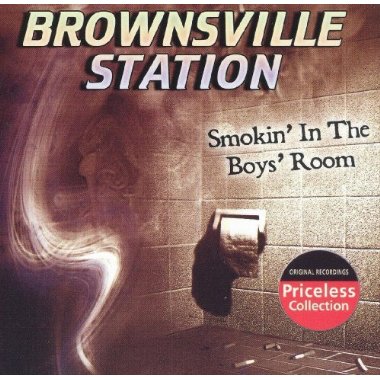The 1979 movie, Breaking Away, is the softer, more empathetic version of Animal House, chronicling the conflict between locals or townies or cutters, and the university students who invade these towns for four years at a time.
Set in Bloomington, Indiana, I was at the time similarly attracted by cycling and the exasperated father, played by Paul Dooley, in a role he  essentially reprised in the teen classic, Sixteen Candles as Molly Ringwald’s father.
essentially reprised in the teen classic, Sixteen Candles as Molly Ringwald’s father.
A resident of Guelph (that’s in Canada) stepped forward a couple of weeks ago and accused four males, three wearing Ontario Agriculture College (OAC) leather jackets that said “Aggie” on the back, of bullying geese by herding them to a nearby park and threatening to throw a large, inflated, plastic ball at them.
As reported by the Guelph Mercury, because of the OAC jackets, she concluded those harassing the geese were University of Guelph students. Because of this she said the April 3 incident became a tipping point for her in how she regards the continuing saga permanent residents encounter in the area shared with university students who rent temporary housing there during the academic year.
The resident approached the putative students and was told by one that if he wanted to kill the geese, he would have picked it up and snapped its neck. Another student tossed the ball at her, saying if she was worried about the ball, she could have it, which she still does.
Dean of the OAC, Robert Gordon, says if the incident unfolded as  Laverty-Pagnan asserts, the college is disappointed.
Laverty-Pagnan asserts, the college is disappointed.
“It’s something we don’t condone,” Gordon says. “If there is a need to extend the code of conduct to other areas, our university is always prepared to take a leadership role.”
Way to go, Aggies.

 possible.
possible. Hygiene Centre, who led the research, said,
Hygiene Centre, who led the research, said,